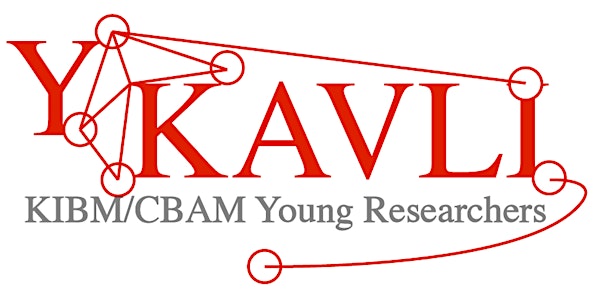
YKavli January Lunch
Date and time
Location
Description
The Kavli Institute for Brain and Mind (KIBM) hosts meetings for early career researchers to help foster their research community at UCSD. Our goal is to bring early career researchers (non-faculty) together so they can meet, network and share research. This event is open only to EARLY CAREER RESEARCHERS (grad student/ postdoc/ project scientist).
This luncheon consists of a few short, informal talks by early career researchers, followed by a networking social hour. Lunch will be provided by KIBM.
Talks
*Nick Spitzer (KIBM Co-Director) will speak about/ answer questions about the KIBM Innovative Research Grant proposals (due 2/27/20) from 12:00-12:15pm. Come with your questions!
Dr. Pragathi Balasubramani - Towards building efficient cognitive brain computer interfaces
Abstract: Healthy brains are wired to effectively and efficiently process information and exhibit cognitive control - they simultaneously ensure stability as well as flexibility, reflect an essential capacity to adapt to constantly changing environmental, situational and motivational contexts. I will talk about my work with a scalable, mobile platform BrainE, which aims at assessing cognitive control within and across humans rapidly, across the mental wellness to illness continuum and across the lifespan in a large scale. The platform evaluates several integral cognitive constructs including internal and external attention processing, distraction processing, reward processing, working memory and emotional processing, simultaneous with EEG-based neurophysiology. In contrast to contemporary cognitive batteries, our platform further estimates the underlying cortical sources and holistically relates cortical activity not only with cognitive parameters and behavior but also with mental health measures. I will present evidences to support that our integrated understanding of cognitive and mental health can successfully guide interventional applications.
Robert Kim - Recurrent Neural Networks as a Model to Probe Neuronal Timescales Specific to Working Memory
Abstract: Cortical neurons process and integrate information on multiple timescales. In addition, these timescales or temporal receptive fields display functional and hierarchical organization. For instance, areas important for working memory (WM), such as prefrontal cortex, utilize neurons with stable temporal receptive fields and long timescales to support reliable representations of stimuli. Despite of the recent advances in experimental techniques, the underlying mechanisms for the emergence of neuronal timescales long enough to support WM are unclear and challenging to investigate experimentally. Here, we demonstrate that spiking recurrent neural networks (RNNs) designed to perform a WM task reproduce previously observed experimental findings and that these models could be utilized in the future to study how neuronal timescales specific to WM emerge.
Bio: Robert is an MD/PhD student in the Neurosciences Graduate Program, and he is currently finishing his graduate work in the Computational Neurobiology Laboratory of Dr. Terrence Sejnowski at the Salk Institute. Robert is interested in computational modeling and analysis of neural networks to better understand cognitive functions.
Please RSVP above.
More information about YKavli can be found here. You can join our mailing list to receive announcements about future events.